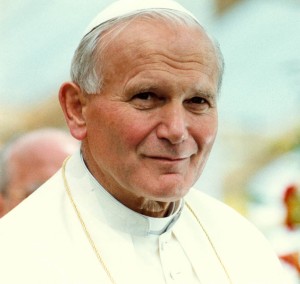 Today’s First Reading at Mass was taken from Genesis. It features what Pope John Paul II would call the key to understanding what came to be known as the “Theology of the Body”, John Paul’s legendary catechesis on human sexuality and embodiment.
Today’s First Reading at Mass was taken from Genesis. It features what Pope John Paul II would call the key to understanding what came to be known as the “Theology of the Body”, John Paul’s legendary catechesis on human sexuality and embodiment.
This key is the phrase, “The man and his wife were both naked, and felt no shame”. Why is this so crucial? To understand, we must revisit an earlier work of Karol Wojtyla/John Paul II, “Love and Responsibility”. The key thought in this book is that to love is the very opposite of what it means to use someone. Love is a total gift of oneself. This is exactly what Adam and Eve experienced before the Fall. The very pattern if their bodies demanded that they seek to be a self-gift to the beloved.
But after sin entered the world, lust entered the world. Adam and Eve instinctively cover themselves (prior to this, they had not even realized they were naked) with fig leaves (the original “Fruit of the Loom” underwear). Why? Christopher West, a well-known commentator on the TOB, puts it this way. Lust is sexual desire, devoid of the love of God. It is sexual desire (which is good and God-given in itself) misdirected. It is a desire which no longer seeks to give oneself completely to the beloved, but to take, to use the other as a mere object.
The cross of Christ is the very opposite of this. It is by contemplating the crucifix, and the supreme self-offering of the New Adam, Jesus, to his bride, the Church, that we understand what love truly is. And it is from the power of the cross that we derive, through the sacraments, the strength to imitate that love.


